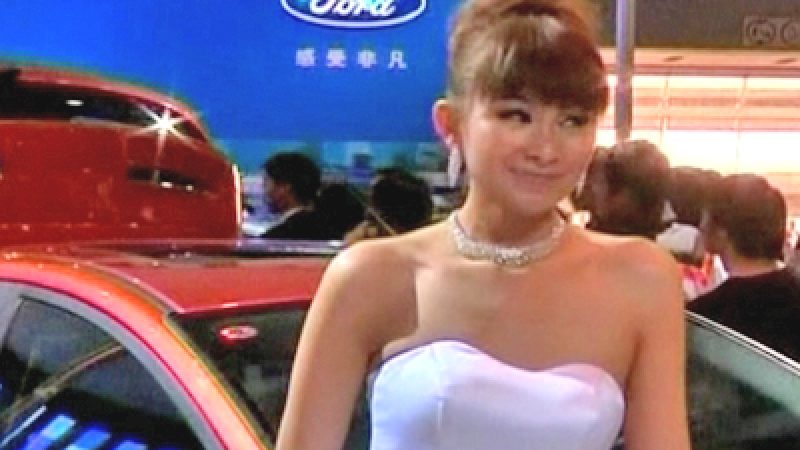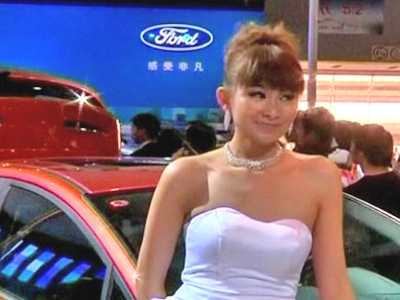
Guangzhou Auto Show Aims at China’s Domestic Market

They say money can’t buy happiness, but it certainly can buy cars, and in China’s case, about 17 million this year alone.
This translates to a staggering 35 percent or so rise from a year earlier, and global automakers clearly want a slice of the pie.
At least five international carmakers launched new models at the Guangzhou Auto Show, with a combined 890 vehicles on show to entice the country’s car lovers.
Models range from luxury brands like the Lexus GX460, which starts at about 1.2 million yuan, or about $174,000, and a new Cadillac for the wealthy set, to more everyday offerings like Nissan’s Sunny, and the Verna from South Korean carmaker Hyundai.
Unlike the more prestigious auto shows in Shanghai and Beijing aimed at the international market, Guangzhou’s auto show is aimed more at local buyers.
Global automakers are especially keen on breaking into smaller, lower-income cities dominated by local carmakers. Growth in these lower-tier markets has outstripped first-tier markets.
While price has long been a big factor, prospective buyers like Jiang Min are now paying more attention to a car’s styling and appearance, highlighting how it’s a key status symbol in China.
[Jiang Min, Prospective Car Buyer]:
„It’s really beautiful. Especially the English limited edition. Its interior and exterior are both very pretty. All women love it.“
Chinese automaker SAIC is counting on that brand cache to reach out globally, confirming plans to manufacture and sell the MG6 in the UK next year.
SAIC owns the MG brand and wants to use it as a springboard into the European market. It will be the first Chinese automaker to make and sell cars in a mature market.
SAIC has a successful 13-year relationship with GM in China.
China’s car market is expected to return to more rational growth in 2011 after breakneck expansion in the past two years, but carmakers remain positive that sales will continue to grow at double-digit rates in 2011.
 Foto: NTDTV
Foto: NTDTV



























vielen Dank, dass Sie unseren Kommentar-Bereich nutzen.
Bitte verzichten Sie auf Unterstellungen, Schimpfworte, aggressive Formulierungen und Werbe-Links. Solche Kommentare werden wir nicht veröffentlichen. Dies umfasst ebenso abschweifende Kommentare, die keinen konkreten Bezug zum jeweiligen Artikel haben. Viele Kommentare waren bisher schon anregend und auf die Themen bezogen. Wir bitten Sie um eine Qualität, die den Artikeln entspricht, so haben wir alle etwas davon.
Da wir die Verantwortung für jeden veröffentlichten Kommentar tragen, geben wir Kommentare erst nach einer Prüfung frei. Je nach Aufkommen kann es deswegen zu zeitlichen Verzögerungen kommen.
Ihre Epoch Times - Redaktion